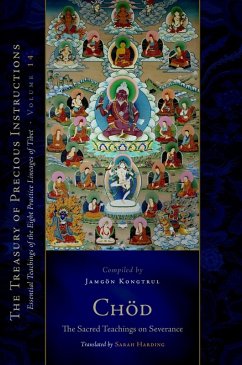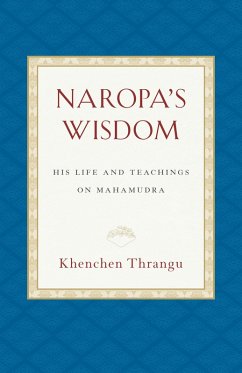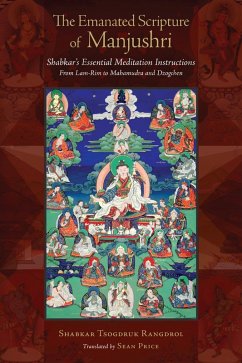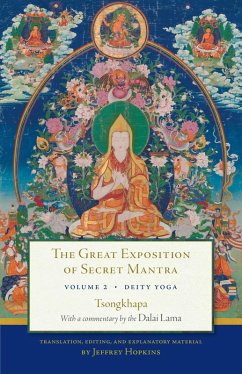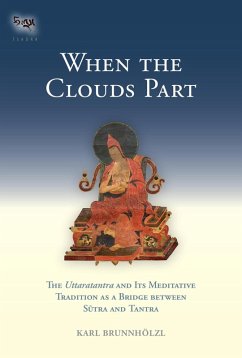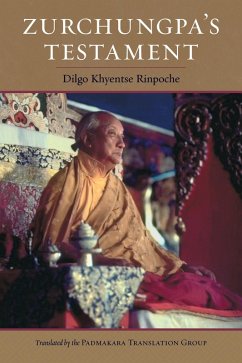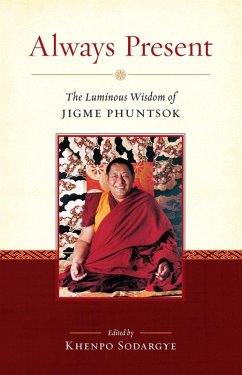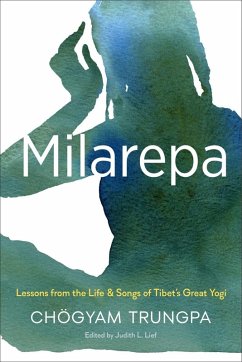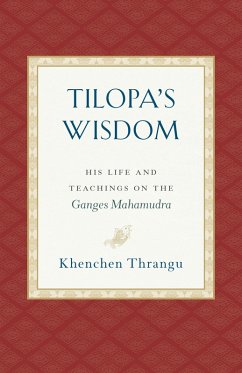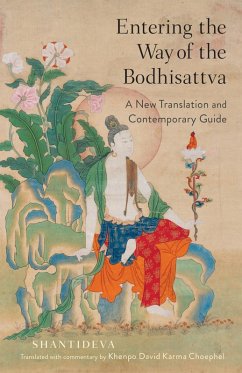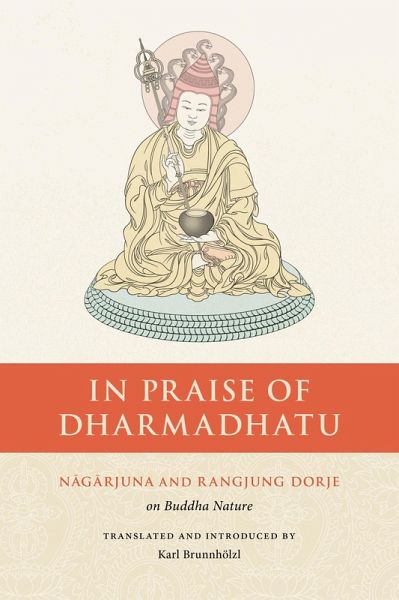
In Praise of Dharmadhatu (eBook, ePUB)
Nagarjuna and Rangjung Dorje on Buddha Nature
Übersetzer: Brunnhölzl, Karl
Versandkostenfrei!
Sofort per Download lieferbar
16,95 €
inkl. MwSt.
Weitere Ausgaben:

PAYBACK Punkte
8 °P sammeln!
Nagarjuna is famous in the West for his works not only on Madhyamaka but his poetic collection of praises, headed by In Praise of Dharmadhatu. This book explores the scope, contents, and significance of Nagarjuna's scriptural legacy in India and Tibet, focusing primarily on the title work. The translation of Nagarjuna's hymn to Buddha nature-here called dharmadhatu-shows how buddha nature is temporarily obscured by adventitious stains in ordinary sentient beings gradually uncovered through the path of bodhisattvas and finally revealed in full bloom as buddhahood. These themes are explored at a...
Nagarjuna is famous in the West for his works not only on Madhyamaka but his poetic collection of praises, headed by In Praise of Dharmadhatu. This book explores the scope, contents, and significance of Nagarjuna's scriptural legacy in India and Tibet, focusing primarily on the title work. The translation of Nagarjuna's hymn to Buddha nature-here called dharmadhatu-shows how buddha nature is temporarily obscured by adventitious stains in ordinary sentient beings gradually uncovered through the path of bodhisattvas and finally revealed in full bloom as buddhahood. These themes are explored at a deeper level through a Buddhist history of mind's luminous nature and a translation of the text's earliest and most extensive commentary by the Third Karmapa Rangjung Dorje (1284-1339), supplemented by relevant excerpts from all other available commentaries. The book also provides an overview of the Third Karmapa's basic outlook, based on seven of his major texts. He is widely renowned as one of the major proponents of the shentong (other-empty) view. However, as this book demonstrates, this often problematic and misunderstood label needs to be replaced by a more nuanced approach which acknowledges the Karmapa's very finely tuned synthesis of the two great traditions of Indian mahayana Buddhism, Madhyamaka and Yogacara. These two, his distinct positions on Buddha nature, and the transformation of consciousness into enlightened wisdom also serve as the fundamental view for the entire vajrayana as it is understood and practiced in the Kagyu tradition to the present day.
Dieser Download kann aus rechtlichen Gründen nur mit Rechnungsadresse in A, B, BG, CY, CZ, D, DK, EW, E, FIN, F, GR, HR, H, IRL, I, LT, L, LR, M, NL, PL, P, R, S, SLO, SK ausgeliefert werden.




